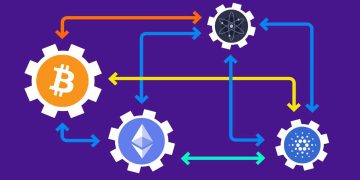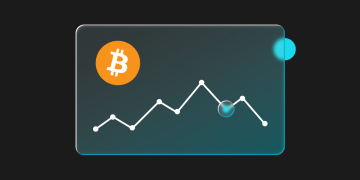Introduction
Decentralized exchanges (DEXs) have gained substantial traction in the cryptocurrency world in recent years. Unlike traditional centralized exchanges (CEXs), which require users to trust a central authority to facilitate trades, DEXs enable peer-to-peer trading without intermediaries. This decentralized nature provides users with greater control over their assets, enhanced privacy, and improved security. However, while DEXs are a game-changer in the world of digital assets, they also come with their own set of challenges, particularly in terms of scalability, security, liquidity, and governance.
As the need for more robust and efficient DEXs grows, blockchain solutions such as Chain Core are emerging as key players in enhancing DEX functionality. Chain Core is an enterprise-grade blockchain infrastructure that focuses on solving scalability, performance, and security issues that typically affect decentralized financial applications. By providing scalable, high-performance blockchain infrastructure, Chain Core offers significant improvements to decentralized exchanges, making them more efficient, secure, and accessible.
In this article, we explore how Chain Core supports decentralized exchanges and how its features can improve the user experience, boost transaction efficiency, and enable enhanced liquidity and security on DEX platforms.
Understanding Decentralized Exchanges (DEXs)
What is a Decentralized Exchange?
A decentralized exchange (DEX) is a platform that facilitates peer-to-peer cryptocurrency trading without the need for an intermediary or centralized authority. In contrast to centralized exchanges (CEXs) like Binance or Coinbase, DEXs allow users to trade directly with each other. The key features of a DEX include:
- Non-custodial: Users retain control over their private keys and funds, reducing the risk of hacks and thefts associated with centralized platforms.
- Trustless Transactions: Trades are executed through smart contracts, ensuring that both parties fulfill their obligations without the need for a trusted third party.
- Privacy: DEXs allow users to trade without requiring personal information or KYC (Know Your Customer) procedures, although this has regulatory implications.
- Global Accessibility: DEXs are accessible to anyone with an internet connection, offering a truly global, permissionless trading environment.
While DEXs have garnered significant interest due to their decentralization and security advantages, they are not without their challenges.
Challenges Faced by Decentralized Exchanges
Despite the obvious advantages, decentralized exchanges still face a range of issues that need to be addressed for mass adoption:
- Scalability: As DEXs scale, the ability to process a large number of transactions simultaneously becomes increasingly challenging. Without an efficient infrastructure, DEXs can suffer from congestion, delays, and high gas fees.
- Liquidity: Liquidity is one of the most significant barriers for DEXs. Traditional centralized exchanges benefit from deep liquidity pools, whereas DEXs often struggle to match buyers and sellers, leading to slippage and poor user experience.
- User Experience: DEXs generally require more technical knowledge from users compared to CEXs. The complexity of interacting with decentralized wallets, managing private keys, and understanding gas fees can deter non-technical users.
- Security: While DEXs eliminate the need for trusted intermediaries, they are still vulnerable to smart contract bugs, front-running attacks, and other vulnerabilities inherent in decentralized systems.
- Governance: Many DEXs use decentralized governance models, which can result in fragmented decision-making. Ensuring the security and sustainability of governance mechanisms is a key challenge.
Given these challenges, solutions like Chain Core are critical in advancing DEX platforms by offering scalable, secure, and efficient infrastructure.
How Chain Core Enhances DEXs
1. Scalability Solutions
One of the most significant challenges for DEXs is scalability. Traditional blockchains, such as Ethereum, face issues related to transaction throughput, leading to network congestion, high gas fees, and slow transaction times during periods of high demand.
Chain Core addresses these scalability concerns by leveraging several advanced technologies:
- High Throughput: Chain Core is built to support a large volume of transactions per second (TPS). Its architecture is designed to handle thousands of TPS, making it suitable for high-demand applications like DEXs.
- Sharding: Chain Core employs sharding techniques, which allow for the parallel processing of transactions. By dividing the network into smaller, more manageable partitions (shards), Chain Core can drastically increase its processing capacity without compromising security or decentralization.
- Layer 2 Solutions: To further enhance scalability, Chain Core integrates Layer 2 solutions like state channels and rollups. These solutions allow for faster transaction processing off-chain while still ensuring that final settlement occurs on the main chain. This reduces congestion and costs for DEX users.
By leveraging these technologies, Chain Core ensures that DEXs built on its infrastructure can handle large-scale adoption, mitigate delays, and provide an optimal user experience.
2. Enhanced Security and Trustlessness
Security is one of the key selling points of decentralized exchanges, but it is also one of the biggest concerns. While DEXs eliminate the risks associated with centralized exchanges (such as hacks or internal fraud), they are still vulnerable to smart contract bugs, front-running, and other attacks.
Chain Core enhances the security of DEXs in several ways:
- Smart Contract Audits and Formal Verification: Chain Core supports smart contract development with built-in formal verification tools. This ensures that smart contracts deployed on the blockchain are free from vulnerabilities and function as intended.
- Decentralized Consensus Mechanism: Chain Core uses a highly secure consensus mechanism, such as Practical Byzantine Fault Tolerance (PBFT) or Proof-of-Stake (PoS), which ensures that the network remains secure even in the event of some participants acting maliciously.
- End-to-End Encryption: Transactions on Chain Core are encrypted end-to-end, providing an additional layer of security and protecting user data from potential attacks.
- Built-in Anti-Front-Running Measures: Chain Core can integrate solutions to prevent front-running, a common issue in DEXs where malicious actors exploit information about pending transactions to their advantage.
By providing these security features, Chain Core ensures that DEXs are resistant to common vulnerabilities and offer users a truly trustless environment where transactions are guaranteed to be executed as intended.

3. Liquidity Solutions
Liquidity remains one of the most pressing concerns for DEXs. Without sufficient liquidity, users are unable to execute large trades without facing significant slippage, leading to a poor trading experience.
Chain Core addresses liquidity issues by:
- Cross-Chain Compatibility: Chain Core supports interoperability between different blockchains, allowing users to trade assets from multiple blockchains within a single DEX platform. This significantly increases the liquidity pool and creates more trading opportunities.
- Liquidity Pools: Chain Core enables the creation of decentralized liquidity pools, which are essential for DEXs to function effectively. By integrating liquidity providers (LPs) into the network, Chain Core ensures that DEXs can maintain sufficient liquidity for seamless trading.
- Automated Market Makers (AMMs): Chain Core facilitates the integration of AMMs, which allow users to trade assets directly with smart contracts. This eliminates the need for an order book and ensures that liquidity is always available for users.
4. Interoperability
DEXs often operate on specific blockchains (such as Ethereum, Binance Smart Chain, or Solana), limiting their access to liquidity and assets across different networks. Chain Core supports cross-chain interoperability, allowing DEXs to access a broader range of assets and liquidity from various blockchains.
Through Cross-Chain Communication (CCC) protocols, Chain Core enables seamless communication between different blockchain ecosystems. This provides several benefits:
- Access to a Larger Pool of Liquidity: By allowing assets from multiple blockchains to be traded on a single DEX, Chain Core ensures that users have access to a greater range of trading pairs.
- Enhanced Asset Diversity: Cross-chain compatibility enables DEXs to list a wider range of digital assets, attracting more users and increasing trading volumes.
5. Governance and Community Engagement
In the decentralized world, governance plays a crucial role in ensuring that a DEX remains secure, sustainable, and responsive to the needs of its users. Chain Core provides a robust governance framework that supports decentralized decision-making and community participation.
- Decentralized Autonomous Organization (DAO) Integration: Chain Core supports the creation of DAOs, allowing DEX users to vote on critical decisions such as protocol upgrades, fee structures, and liquidity incentives.
- On-chain Governance: Chain Core’s governance model is integrated directly into the blockchain, allowing for transparent, immutable voting and decision-making processes.
This decentralized approach to governance ensures that DEXs built on Chain Core are governed by their communities, ensuring that they remain secure, fair, and aligned with the interests of their users.
Conclusion
As decentralized exchanges continue to grow in popularity, the need for robust, scalable, and secure blockchain solutions becomes increasingly important. Chain Core offers the perfect infrastructure for supporting the development and operation of DEXs, providing solutions to scalability, security, liquidity, and governance challenges.
By offering a high-performance blockchain with cross-chain interoperability, strong security features, and built-in liquidity solutions, Chain Core is poised to play a key role in the evolution of decentralized exchanges. As the blockchain ecosystem matures and more users flock to decentralized finance, Chain Core will continue to empower DEXs, enabling them to operate more efficiently, securely, and inclusively.
In the coming years, DEXs powered by Chain Core will not only transform the way assets are traded but also redefine the future of decentralized finance, ushering in a new era of trustless, transparent, and
efficient financial transactions.

















































